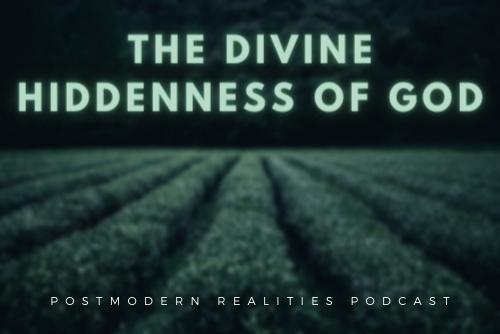
For us to have a robust free will, there must be an amount of divine hiddenness, or what John Hick called “epistemic distance.” Divine hiddenness is the teaching that for humans to act out of free will, God’s existence (or presence) can’t be too obvious. Not surprisingly, this is a doctrine that many Christians misunderstand and over which skeptics howl. Many Christians ask, and even sometimes complain, that God should make His presence more apparent. Skeptics complain that if God really loved us (in other words, if God were really a good God), He would make His existence unmistakable.
But the Lord absolutely doesn’t want to do that. Why? Because the Lord doesn’t want us to feign loyalty. As Clay Jones wrote in his book, Why Does God Allow Evil?, God could have designed the universe so that when we looked up, even if we were indoors, we would always see a Giant Flaming Sword, and if anyone rebelled against God, that Giant Flaming Sword would immediately cut him in half! Omnipotence could easily do such a thing. But how many people would be Christian in such a world? All of them! Everyone would, at the very least, feign loyalty. But how many true worshippers would you get in such a world? You don’t get true worshippers in that world. Worship, like love, must be uncoerced.
This Postmodern Realities episode is a conversation with Journal author Clay Jones about his article in the 44:4 issue, entitled, “Four Types of Divine Hiddenness of God”.
When you to subscribe to the Journal, you join the team of print subscribers whose paid subscriptions help provide the resources at equip.org that minister to people worldwide. These resources include our ever growing database of over 1,500 articles, as well as our free Postmodern Realities podcast.
Another way you can support our online articles is by leaving us a tip. A tip is just a small amount, like $3, $5, or $10 which is the cost for some of a latte, lunch out, or coffee drink. To leave a tip, click here
Other articles and podcasts featuring this author:
Postmodern Realities Episode 247: Is It True That There Are Good Non-Christians?
Is It true That There Are Good Non-Christians?
Postmodern Realities Episode 233 You Probably Aren’t Saved If…(This Is about Sex)
You Probably Aren’t Saved If…(This Is about Sex)
Postmodern Realities Episode 202 Symbolic Immortality Projects Can’t Save You
Symbolic Immortality Projects Can’t Save You
Immortal—Epicurus, Sam Harris, and Bart Ehrman Are Wrong: Death Is Something
Postmodern Realities Episode 176 Our Fallen World
Hank Unplugged: Why God Permits Evil with Clay Jones
Postmodern Realities: Episode 114 Why Did God Let that Child Die?
Why Did God Let That Child Die?
Postmodern Realities: Episode 068: Something Made: The Role of Form in Apologetics
Something Made : The Role of Form in Apologetics
Postmodern Realities: Episode 030: Evangelizing the Cultural Christian
Evangelizing the Cultural Christian
Killing the Canaanites: A Response to the New Atheism’s “Divine Genocide” Claims
